Have you already decarbed, made your cannabutter, and are eager and excited to make cannabis cookies finally, but suddenly find yourself hesitant to bake them at 350°F? Learn why it is OK to bake cannabis edibles at higher temperatures and what cooking methods you should avoid instead.
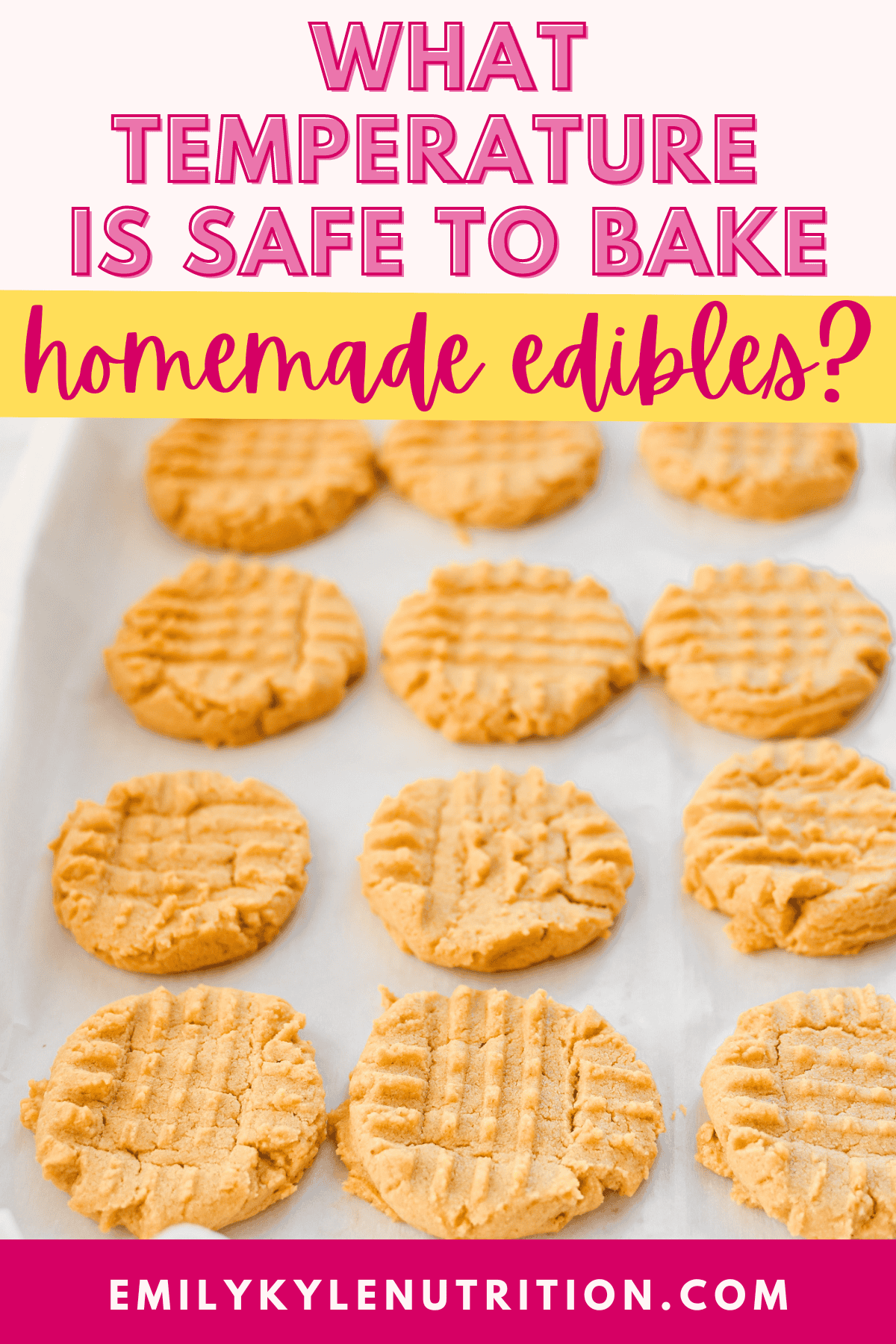
Table of Contents
Article Features
- Why it’s OK to bake edibles at higher temperatures
- The other cooking methods you need to avoid
- Want to skip the hard work? Shop with me and have premium, high-quality cannabis products delivered directly to your door! Now shipping across the US.
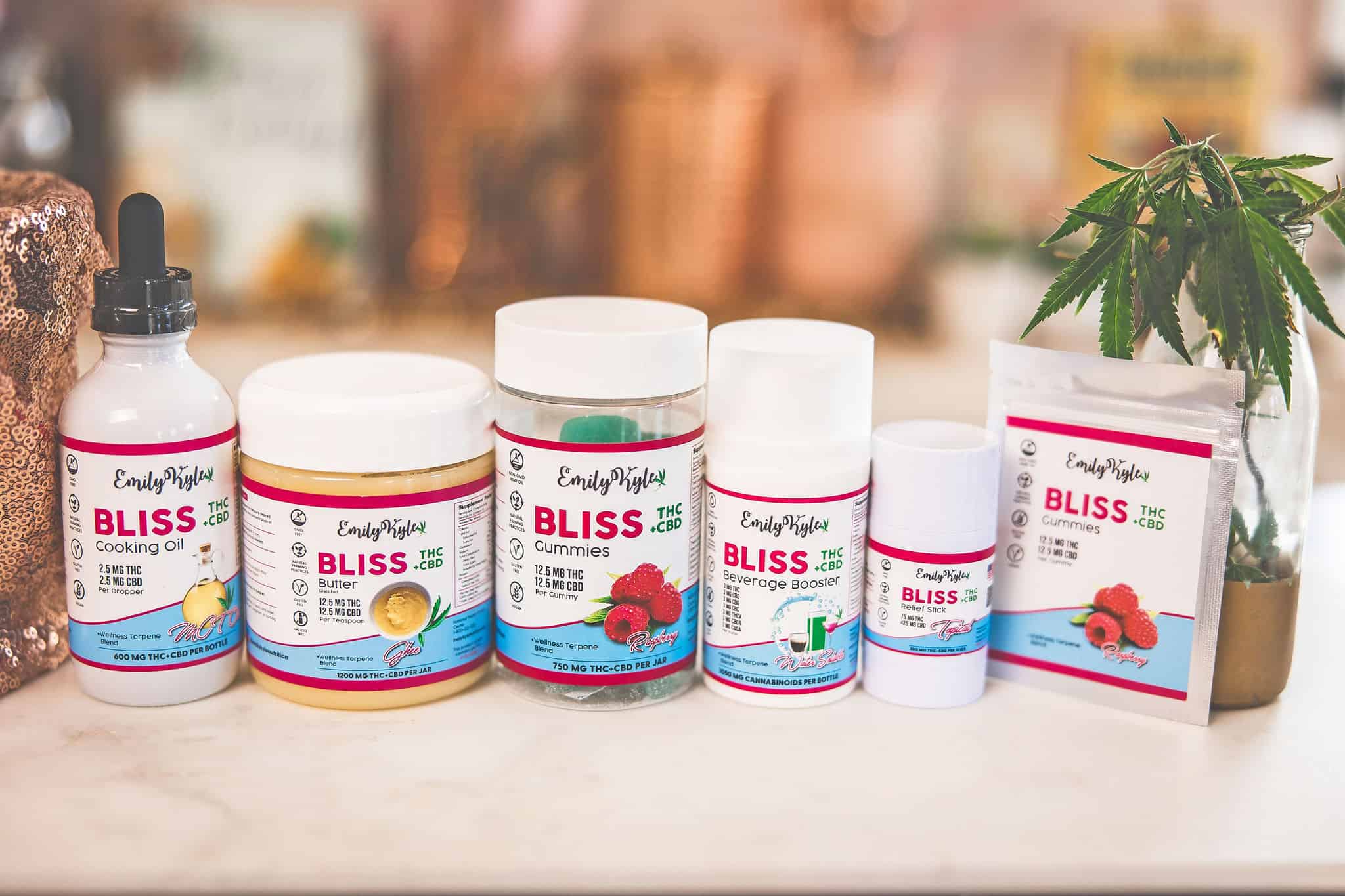
Why You Will Love This Guide
Nothing is better than taking a bite of a freshly baked cannabis cookie.
But before you get that far, you have to make them first, which can involve many steps for new users.
Understandably, you want to decarb, make butter, and bake them perfectly.
Recently, a member of my Well With Cannabis Community wrote to us about how worried she was about baking her cookies at 350°F(177°C) in fear of ruining the THC.
In this guide, I will share why it is OK to bake your favorite edibles at these temperatures, why it won’t ruin the THC, and what else you need to look out for instead.
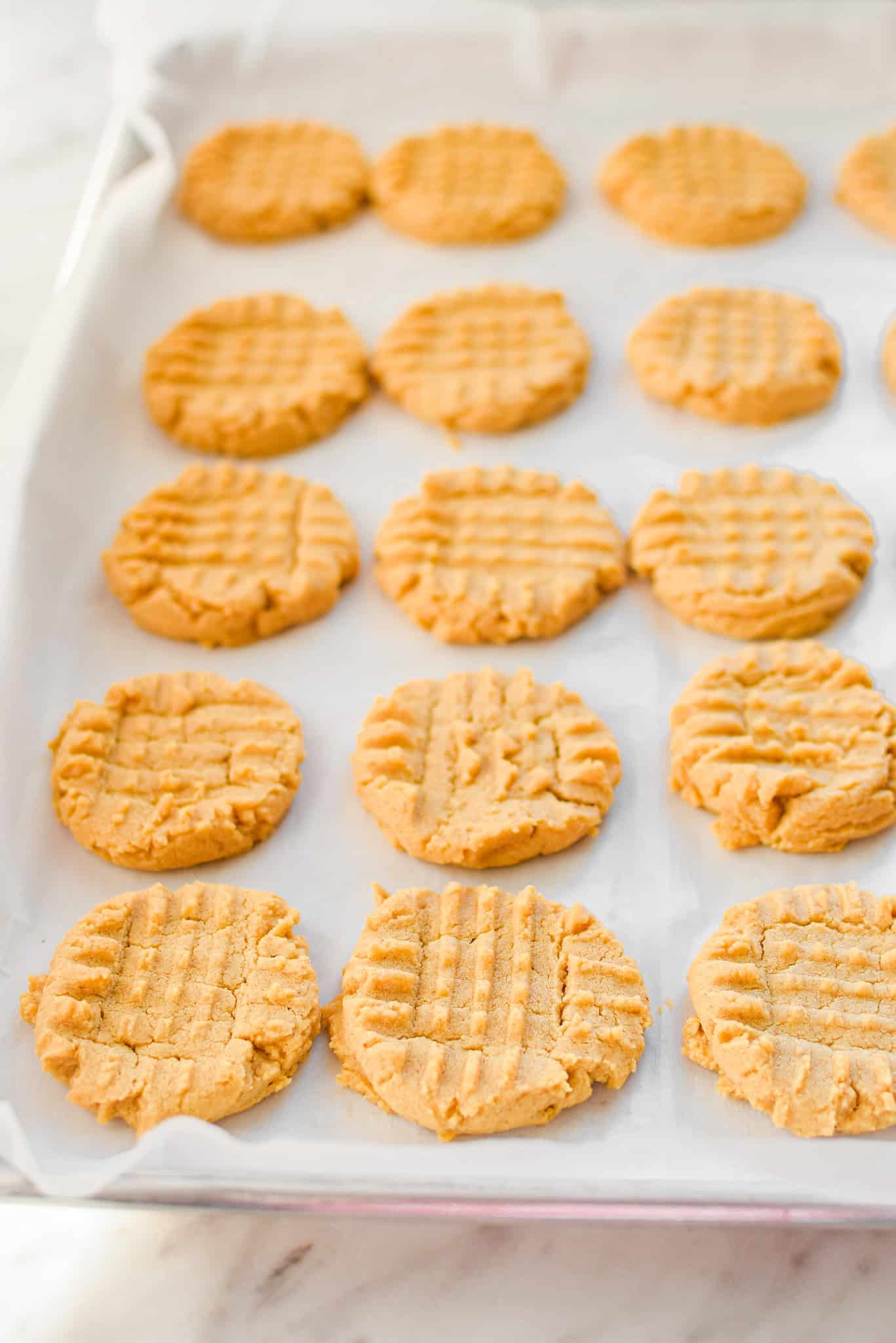
Temperature to Bake Cannabis Edibles
Almost all of my cannabis cookie recipes call to bake them at 325-350°F, and at first, I questioned myself, too.
Are these temperatures too hot? Will they burn off the THC? Will it ruin my final product?
But then Chef Phil explained to me why it is OK to bake cookies at this temperature without worrying about ruining them.
The oven temperature is set to 350°F(177°C), but this doesn’t mean the food temperature gets that high.
Think about it like this, when you bake fish, like my cannabis-baked fish.
The instructions say to preheat the oven to 400°F(204°C) and put the baking dish inside to cook for 12-15 minutes.
You will know it is done when the fish reaches an internal temperature of 145°F(63°C).
Cannabis cookies are the same. You place them in the oven at any temperature called for in the recipe and let them cook until they are done, approximately 165°F(75°C).
When baking, you do not need to worry about ruining the THC because the item should never reach the degradation temperature of 340°F(1711°C).
Note: this explanation does not account for the low temperatures required to preserve different compounds, like terpenes, which may degrade at lower temperatures.
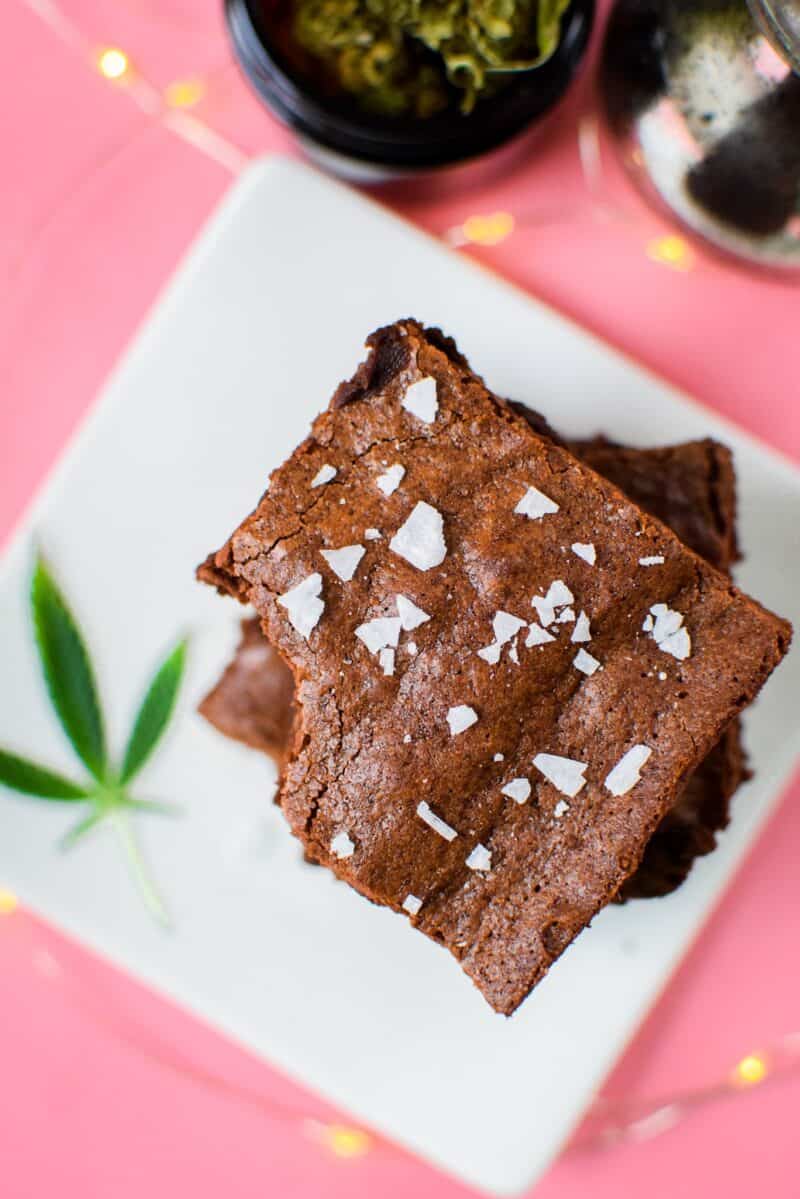
Cooking Methods to Avoid
Now that we know it is safe to bake our edibles at temperatures 300°F(149°C) or more, it’s time to mention what is not safe for homemade edibles.
Here are a few cooking methods to avoid when working with cannabutter or different types of cannabis oil.
Remember, this is after the decarboxylation and infusion process has already taken place.
Avoid Burning
If you accidentally overcook or burn your cannabis edibles at high temperatures, there is then a possibility you may destroy some valuable compounds.
The best way to prevent overcooking or overbaking is to set a timer you will notice, whether it be on your oven or your phone, so you don’t forget about your baked goods.
Avoid Frying
We’ve all seen the classic cannabis fan leaf going into the deep fryer, and that is OK because those leaves don’t contain very many trichomes.
However, that doesn’t mean frying your other edibles is a good idea.
Whether you want to fry something in cannabis-infused oil or an infused edible in regular oil, the temperatures are just too hot.
Hot oil can get up to between 350-375°F, making it possible to destroy the THC, so avoid this cooking method.
Avoid the Microwave
As tempting as it may be to thaw that cannabutter or coconut oil in the microwave, do not do it.
Microwaves can get very hot, upwards of 500°F, and are often unpredictable and unregulated when heating foods.
The variability and potential for such a high temperature make microwaving cannabis a no-no.
Whether you’re trying to decarb in a microwave or thaw out some cookie dough, resist the urge, be patient, and do it the right way.
Learn more about why you need to avoid the microwave here.
Avoid Grilling
Making healthy and sugar-free cannabis recipes is becoming popular, and grilling is a great way to prepare healthy foods like veggies.
Grills have so much temperature variability, so this will depend on your level of cooking, expertise, and how much you trust yourself.
Cooking at lower temperatures may be OK, but you risk ruining the THC if your grill gets too hot.
One suggestion when making cannabis-infused grilled foods is to wait until after cooking to add your infused option.
For example, I add the infused pesto to these veggie skewers after they come off the grill.
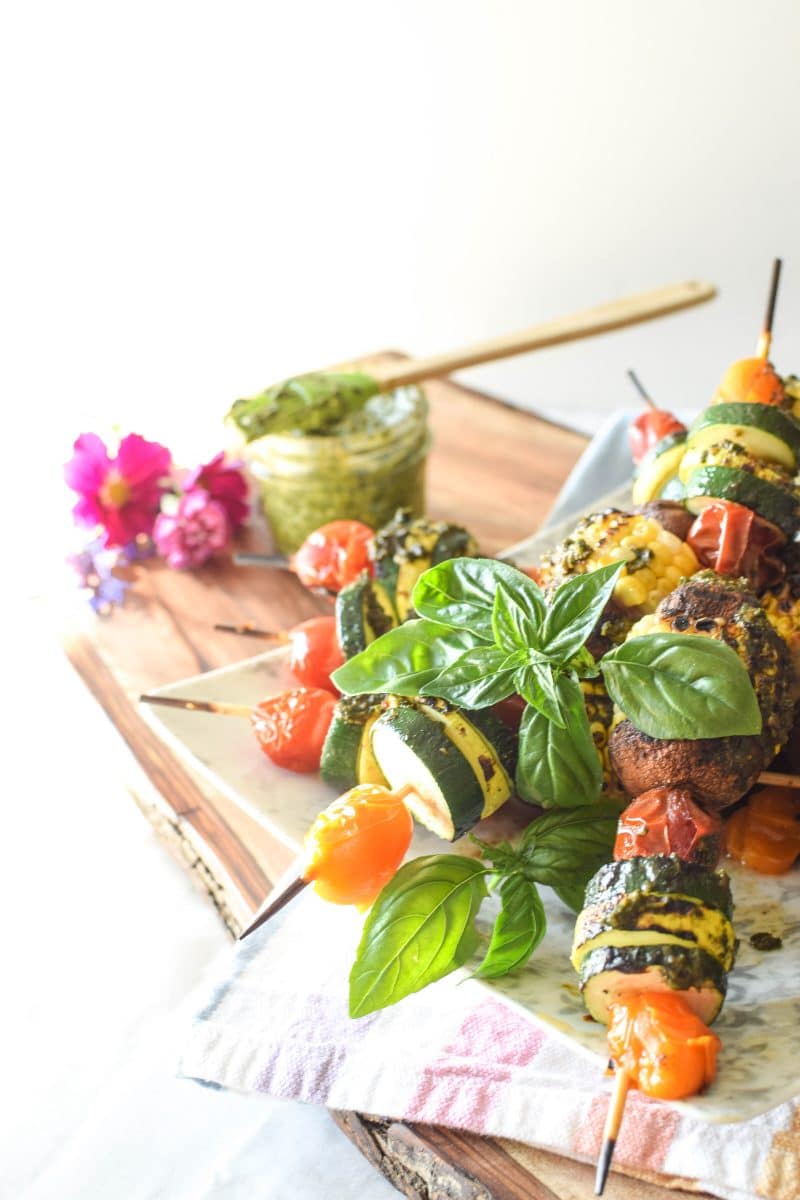
SAVE THIS GUIDE 💌
Cooking Methods to Embrace
After hearing about all the things you shouldn’t do, you may feel like, well, what can I do?
When baking with cannabis, you can embrace any cooking method that allows you to have control of the temperature.
Whether it be an Instant Pot for decarbing and infusing, a crockpot for making oil, or an infusion machine to do it all in one, these methods all have one thing in common – temperature control.
Whether you want to use one of these appliances or something else like sous vide, know that the more control you have over the temperature, the better an option it will be when you go to bake cannabis edibles.
Notes and Expert Tips
- Feeling overwhelmed by all of the terms? Check out my terms and abbreviations guide to help you familiarize yourself with these cannabis terms
- Eager to get baking now? Here are my favorite cookie and brownie recipes to start with
- Still not convinced this is a safe option? Try one of these no-bake cannabutter options instead
- This advice applies to edibles made with flowers, kief, and concentrates or edibles made with just decarbed flower
- Not feeling the effects of edibles? Try tinctures instead
- Remember, edibles can hit differently on a full vs. empty stomach
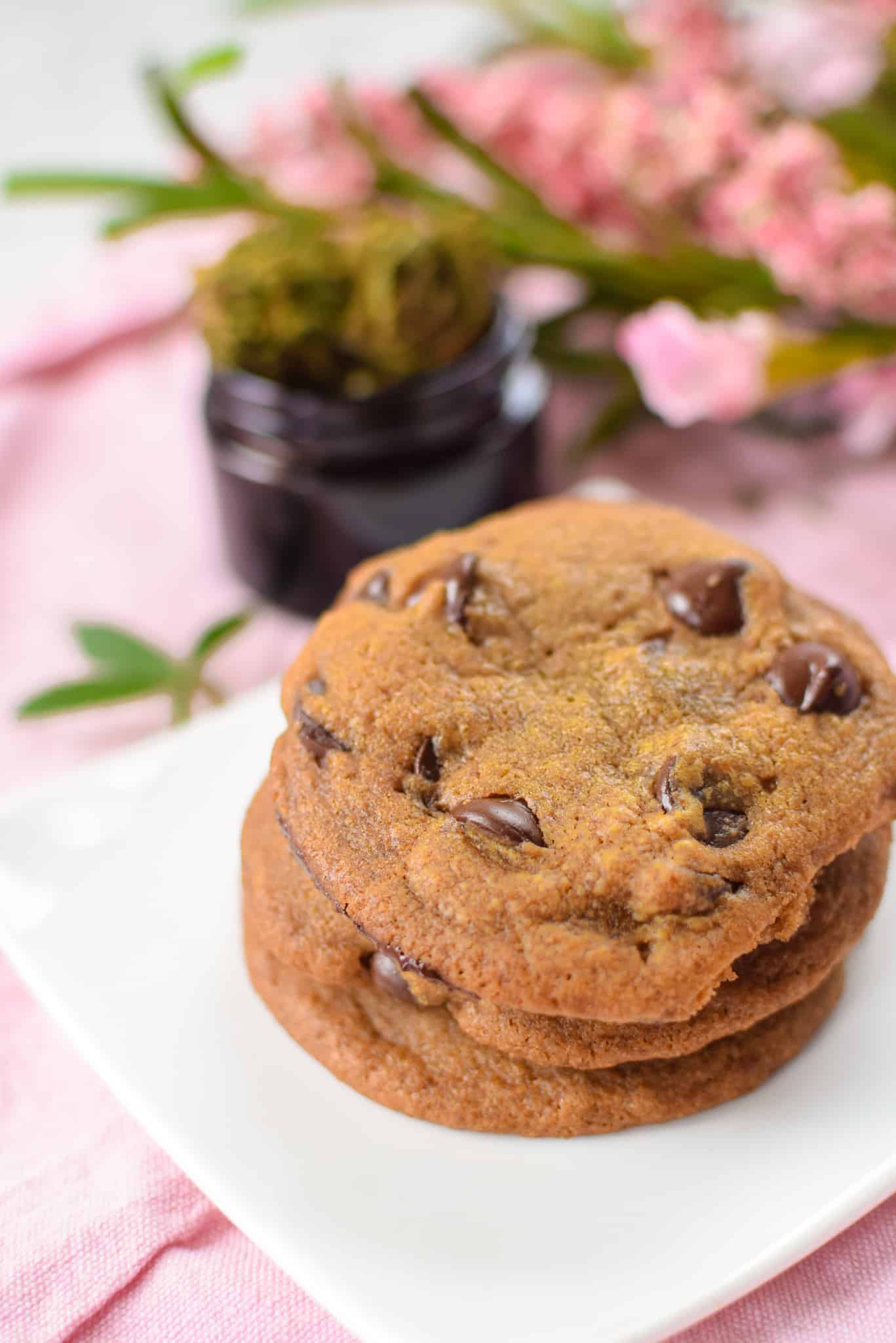
Frequently Asked Questions
Yes, this is a safe temperature to bake edibles because the edible itself never gets that hot.
This article focuses on preserving THC, but its important to note that CBD has it’s own decarb temperature and degredation temperature. CBD cannabutter and other CBD edibles are generally able to withstand more heat than THC.
Yes, how to store your prepared edibles will have an effect on their long-term potency. Learn more about how to store edibles here.

Take your edibles to the next level…
My Edibles Made Easy Online Cooking Course will teach you how to easily make cannabis edibles and topical recipes at home. This step-by-step video course will teach you how to infuse, extract, and create edibles with many different product types – all from the comfort of your own home.
More Guides You Will Love
Articles & How-To Guides
A Beginner’s Guide to Cannabis Edibles
Articles & How-To Guides
How To Use Just Decarbed Cannabis in Edibles
Articles & How-To Guides
Why Edibles Don’t Work For Everyone
Articles & How-To Guides
How To Dose Cannabis Edibles » Safely & Effectively!


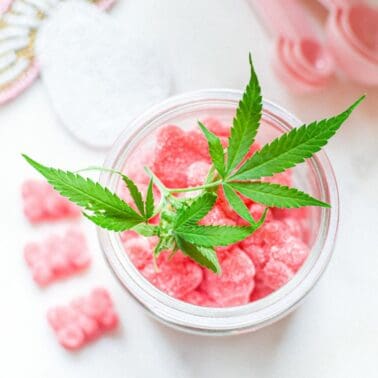
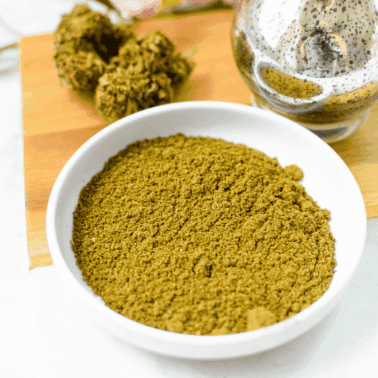
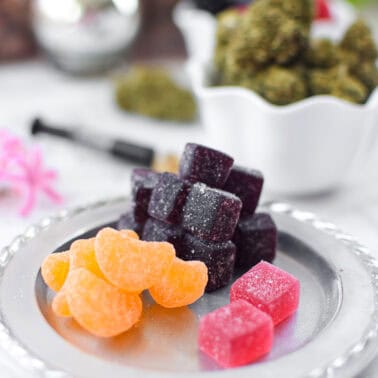
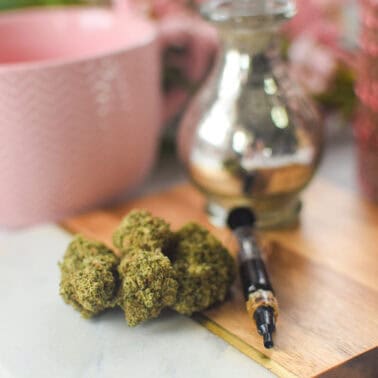
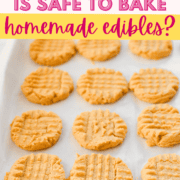








Thank you for a great explanation. I have been on RSO for a decade now and have been wanting to try cooking with cannabis but have been afraid of going above the 282°F I’ve seen listed as the upper limit for decarboxylation. Will try some type of bread I think first.
Thank you again,
Matthew Pruitt
Thank you so much for sharing your experience and kind words, Matthew! I’m so happy to hear that you’re exploring cooking with cannabis, it can be such a rewarding and fun process. Starting with something like bread sounds like a fantastic idea. If you have any questions along the way, I’m here to help. Wishing you the best of luck on your baking adventure! 🌿
Made a batch of edible caramels. I did get worried because it has to boil to 240-248 degrees. What temperature does the THC break down again?
Hi Jennifer. Many people get nervous about bringing the infused cannabutter or cannabis sugar to a high temperature like the 245°F required in this recipe. THC won’t boil until 315° and vaporizes at much higher temperatures. The temperature will not affect the potency of this recipe.